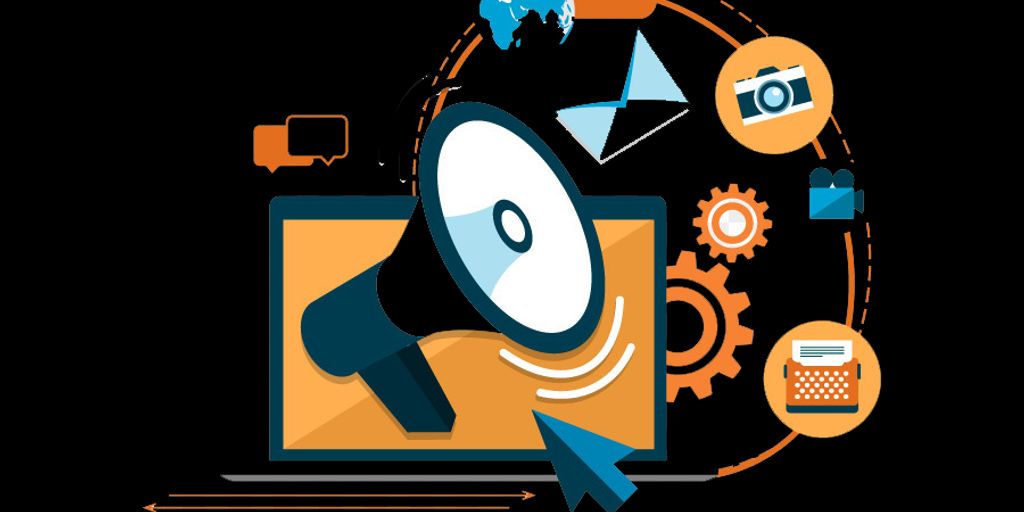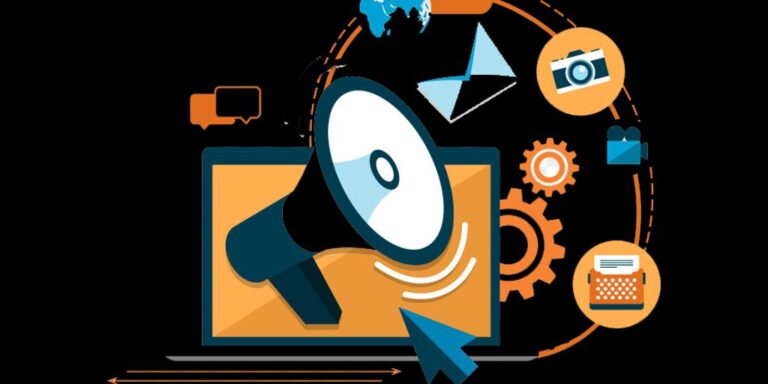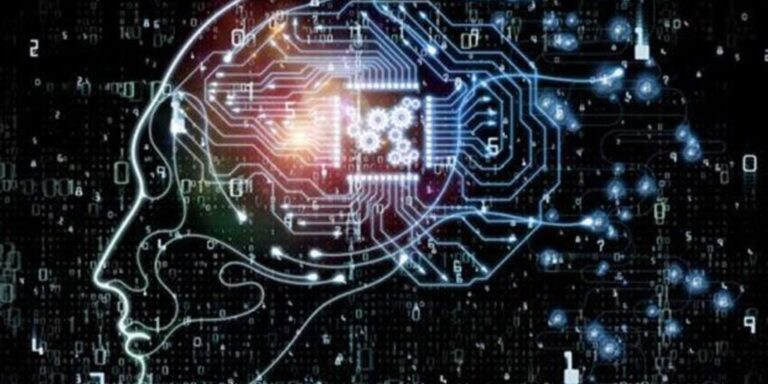In the digital age, the emergence of naked photo generators powered by AI, such as DeepNude, has sparked a significant ethical and privacy debate. These tools, which use advanced image processing technologies to create nude images of individuals without their consent, raise serious concerns about privacy violations, digital ethics, and the potential for abuse. This article explores the multifaceted implications of these technologies, examining their operation, ethical dilemmas, legal challenges, and the broader impact on society.
Key Takeaways
- Naked photo generators use AI to create explicit images without individual consent, posing significant ethical and privacy issues.
- The technology behind these generators often involves Generative Adversarial Networks (GANs), which learn from extensive datasets of nude images.
- There are serious legal and social implications, including potential for misuse in creating non-consensual explicit content like deepfake pornography.
- Legal frameworks vary globally, and enforcement faces challenges due to the rapid advancement and global nature of AI technologies.
- Responsible use and ethical development of AI technologies are crucial to mitigate harm and respect privacy and consent.
Understanding Naked Photo Generators

What Are Naked Photo Generators?
Naked photo generators, often referred to as DeepNude AI Generators or ‘nudifiers’, utilize advanced AI technologies to create nude images from clothed photos. These tools have sparked significant debate regarding their ethical implications and potential for misuse.
How Do They Work?
These generators employ generative adversarial networks (GANs), where a ‘generator’ creates images and a ‘discriminator’ evaluates them. The AI iteratively improves, learning to produce images that closely mimic genuine human nudity. This process highlights the sophisticated capabilities of AI in image synthesis.
The Technology Behind the Scenes
The core technology involves complex AI models, specifically GANs, which are trained on extensive datasets of nude images to accurately generate unclothed versions of clothed individuals. The potential for AI nudification to be used non-consensually raises urgent concerns about privacy and the need for stringent ethical standards in AI development.
Ethical Concerns of Naked Photo Generators

Non-consensual Image Creation
The creation and distribution of images without consent is a primary ethical concern with naked photo generators. These tools can be used maliciously to create deepfake pornography or revenge porn, leading to significant emotional distress and privacy violations for the individuals depicted.
Impact on Privacy and Consent
Naked photo generators complicate the landscape of digital consent. The ability to create and share lifelike images of individuals without their permission challenges traditional notions of privacy and personal autonomy. This technology raises urgent questions about the boundaries of consent in digital spaces.
Legal and Social Implications
The use of naked photo generators can have serious legal and social implications. In many jurisdictions, the creation and distribution of non-consensual explicit images are illegal and can lead to severe legal repercussions. Socially, the existence of such technology can perpetuate harmful norms and expectations about body image and sexual consent, impacting societal views on privacy and ethics.
Privacy Issues with Naked Photo Generators

Data Security and User Consent
Ensuring data security and obtaining user consent are paramount for platforms like Nudify.Online. These platforms must implement robust security measures to protect user data from unauthorized access and breaches. It is crucial that users are fully informed about what happens to their data, including how it is used, stored, and potentially shared. Platforms should provide clear, accessible privacy policies and obtain explicit consent before processing any personal data.
Potential for Misuse
The ease of access to naked photo generators can lead to their misuse, with serious implications for privacy. Unauthorized creation of explicit images can result in personal and professional harm to individuals. To mitigate this, platforms must enforce strict usage policies and take proactive steps to prevent misuse, such as implementing user verification processes and content monitoring systems.
Privacy Policies of Platforms
Platforms that offer services like naked photo generation must have transparent and comprehensive privacy policies. These policies should clearly outline the measures taken to protect user data, the circumstances under which data might be shared, and the rights of users regarding their personal information. Ensuring that these policies are easily accessible and understandable can help build trust and ensure compliance with legal standards.
Legal Landscape Surrounding Naked Photo Generators

Variations in Global Laws
The legality of DeepNude AI Generators varies significantly across different jurisdictions. In some countries, the use of these technologies is strictly prohibited, especially when it involves the creation and distribution of non-consensual explicit images. Other regions may have less stringent regulations, allowing for broader use of such technologies under certain conditions.
Legal Repercussions for Misuse
Legal repercussions for the misuse of naked photo generators are becoming increasingly severe. Many jurisdictions have enacted laws that specifically address the non-consensual creation and distribution of explicit images, often including substantial fines and significant jail time for offenders. This trend reflects a growing recognition of the harm these technologies can cause.
Challenges in Law Enforcement
Enforcing laws against the misuse of naked photo generators presents numerous challenges. The global nature of the internet and the rapid advancement of AI technologies complicate the detection and prosecution of offenders. Efforts to improve international cooperation and develop more effective enforcement mechanisms are crucial to addressing these issues.
The Role of AI in Naked Photo Generation

Generative Adversarial Networks (GANs)
Generative Adversarial Networks, or GANs, are at the forefront of AI technologies used in nudifier AI applications. These networks involve two models: a generator that creates images and a discriminator that evaluates them. The continuous feedback loop enhances the generator’s ability to produce increasingly realistic images, making GANs ideal for creating convincing AI nudes.
AI’s Capabilities and Limitations
AI’s capabilities in generating realistic images are impressive, yet they come with limitations. The technology can sometimes produce images with anomalies, which may not always be immediately noticeable but can affect the authenticity of the generated content. Moreover, the ethical use of such powerful technology remains a significant concern.
Ethical AI Development
The development of AI technologies like the DeepNude AI must prioritize ethical considerations. The potential for misuse, such as the non-consensual creation of explicit images, highlights the need for strict ethical guidelines and robust legal frameworks to govern the use of these technologies.
Preventing Misuse of Naked Photo Generators

Platform Responsibilities
Platforms that offer naked photo generation services must enforce strict policies to ensure ethical use. Key measures include user verification, explicit content filters, and clear terms of service that prohibit misuse. Platforms should also actively monitor and respond to violations to maintain a safe environment.
User Education and Awareness
Educating users about the ethical implications and legal consequences of misusing naked photo generators is crucial. Platforms should provide resources and guidelines to help users understand the potential for harm, particularly through the non-consensual creation of explicit images.
Technological Safeguards
Implementing advanced security measures and AI monitoring systems can help prevent misuse. For example, AI models should be designed to detect and block attempts to create illegal or problematic imagery, such as photographs of non-consensual explicit content. This includes integrating features that ensure all generated content complies with legal standards and ethical guidelines.
Impact on Victims of Non-consensual Content

Emotional and Psychological Effects
The creation of non-consensual nude images can lead to significant emotional distress and psychological trauma. Victims often experience feelings of violation, loss of control, and a deep sense of betrayal. The ease with which these images can be created and distributed exacerbates the impact, making it a pressing concern for the protection of individual rights in the digital age.
Legal Recourse for Victims
Victims of non-consensual content have limited legal recourse, which varies significantly by jurisdiction. The lack of clear legal frameworks and the difficulty in tracing the origins of such content complicate efforts to seek justice. Legal challenges often include proving the non-consensual nature of the content and identifying the perpetrators.
Support Systems and Resources
Victims require robust support systems to cope with the aftermath of non-consensual content creation. Resources such as counseling, legal advice, and online tools to help remove content are crucial. Community support groups and advocacy organizations play a vital role in providing the necessary assistance and raising awareness about the issues surrounding non-consensual content.
Public Perception and Cultural Impact

Media Influence on Perception
The media plays a pivotal role in shaping public opinion about naked photo generators. Often sensationalized, media coverage can amplify fears or misunderstandings about the technology. The portrayal of these tools in news outlets and social media significantly influences public sentiment, sometimes overshadowing the potential benefits with concerns about privacy and misuse.
Cultural Differences in Acceptance
Different cultures exhibit varying levels of acceptance towards naked photo generators. In some societies, the technology is seen as a progressive step towards artistic freedom and innovation, while in others, it is viewed with suspicion and moral concern. This dichotomy can affect the global adoption and regulation of such technologies.
Changing Norms and Ethics
As technology evolves, so too do societal norms and ethical standards. The introduction of naked photo generators has sparked debates about the boundaries of privacy, consent, and artistic expression. It is crucial to navigate these changes thoughtfully to ensure that advancements in technology do not come at the expense of fundamental human rights.
Future of Naked Photo Generators

Advancements in AI Technology
The evolution of AI technology is poised to enhance the capabilities of naked photo generators significantly. AI-powered nude generator platforms in 2024 offer enhanced precision, efficient processing, and improved privacy. This progress is expected to continue, driven by advancements in machine learning algorithms and computational power.
Potential Regulations and Policies
As the technology advances, so too does the need for robust regulations and policies to govern its use. The potential for misuse necessitates a framework that balances innovation with ethical considerations and privacy protections. Governments and regulatory bodies are likely to introduce more stringent measures to curb abuse and ensure responsible usage.
Ethical Considerations Moving Forward
The future of naked photo generators is not just about technological advancements but also about fostering an ethical framework for their use. The conversation around these tools is evolving, focusing increasingly on the implications for privacy, consent, and misuse. It is crucial for developers and users alike to prioritize ethical practices to mitigate potential harms and respect individual rights.
Responsible Use of Naked Photo Generators

Best Practices for Users
To ensure the responsible use of naked photo generators, users should adhere to a set of best practices that prioritize consent and ethical behavior. Always obtain explicit consent from individuals before creating or sharing images generated by these tools. Users should also stay informed about the legal implications of using such technology in their respective jurisdictions.
Developers’ Ethical Responsibilities
Developers of naked photo generators have a crucial role in promoting ethical use. They should implement robust privacy policies and user agreements that clearly outline the acceptable uses of their technology. Additionally, developers are encouraged to integrate safeguards that prevent the misuse of the software, such as watermarking generated images to indicate their artificial origin.
Creating a Safe Digital Environment
Creating a safe digital environment involves both technological and community-driven approaches. Platforms should not only focus on secure data practices but also foster a community that respects privacy and discourages the misuse of technology. Engaging with users through education about the potential harms and ethical considerations of naked photo generators can help cultivate a more responsible user base.
Case Studies: Misuse of Naked Photo Generators

Notable Incidents
The misuse of naked photo generators has led to several high-profile incidents that highlight the potential for harm. For instance, the proliferation of DeepNude AI generators has been rapid, with a growing number of platforms offering these services. This technology, often based on Generative Adversarial Networks (GANs), has sparked significant ethical and privacy concerns due to their potential misuse.
Analysis of Outcomes
The outcomes of these incidents often involve legal repercussions and public outcry. The legality of DeepNude AI Generators varies by jurisdiction, but in many places, their use, especially for creating and distributing non-consensual explicit images, can lead to legal repercussions. Laws related to privacy, cyber harassment, and digital consent may apply, and individuals affected by the misuse of such technology may have grounds for legal action.
Lessons Learned
From these incidents, several lessons can be learned about the responsible use of technology. Exploring alternatives to Deep-Nude AI for ethical AI nudification is crucial. Prioritize consent, respect privacy, and stay updated on legal developments to ensure responsible usage. The need for ethical guidelines, legal frameworks, and responsible use is underscored by these case studies.
Advocacy and Legal Reform

Efforts to Change Laws
Efforts to change laws surrounding naked photo generators are crucial as they address the unique challenges posed by AI-generated content. Advocacy groups and legal experts push for updates in legal frameworks to prevent misuse while balancing innovation and freedom of expression. This includes the need for regulatory frameworks that are adept at handling the rapid advancement of AI and the global nature of the internet.
Role of Advocacy Groups
Advocacy groups play a pivotal role in shaping public policy and legal standards concerning naked photo generators. They work tirelessly to raise awareness about the ethical and privacy concerns associated with these technologies. Their efforts often lead to significant public campaigns aimed at reforming laws and promoting responsible innovation.
Impact of Public Campaigns
Public campaigns have a profound impact on the perception and regulation of naked photo generators. These campaigns highlight the importance of navigating technological advancements with caution and responsibility, often leading to a shift in public opinion and subsequent legal reforms. They also emphasize the need for a balanced approach that ensures the benefits of technology do not come at the cost of personal privacy and security.
Conclusion
In the age of naked photo generators, the intersection of privacy, ethics, and technology presents complex challenges that demand urgent attention. As we have explored, the use of DeepNude AI generators raises profound ethical concerns, primarily around the non-consensual creation and distribution of explicit images. These issues not only infringe on individual privacy but also contribute to broader societal harms such as digital sexual abuse and harassment. It is imperative for developers, lawmakers, and society at large to engage in a rigorous discourse on creating robust ethical guidelines and legal frameworks to govern the use of such technologies. Ensuring that advancements in AI do not come at the cost of human dignity and rights is crucial. The conversation around DeepNude AI generators is not just about technology but about the kind of world we want to live in and the values we choose to uphold.
Frequently Asked Questions
What are Naked Photo Generators?
Naked photo generators are AI-powered applications that create nude images of individuals without their clothing, often using technologies like Generative Adversarial Networks (GANs). These generators synthesize the appearance of the body based on learned patterns from extensive datasets of nude images.
How do Naked Photo Generators work?
Naked photo generators utilize advanced AI algorithms, primarily Generative Adversarial Networks (GANs), to process input images and then synthesize the appearance of the body without clothes based on learned patterns from extensive datasets of nude images.
Are there ethical concerns associated with Naked Photo Generators?
Yes, there are significant ethical concerns associated with Naked Photo Generators, primarily the non-consensual creation and distribution of explicit images. This can lead to privacy violations, harassment, and emotional distress for the individuals depicted.
What are the legal implications of using Naked Photo Generators?
The legality of Naked Photo Generators varies by jurisdiction, but their use, especially for creating and distributing non-consensual explicit images, can lead to legal repercussions. Laws related to privacy, cyber harassment, and digital consent may apply.
How can misuse of Naked Photo Generators be prevented?
Misuse of Naked Photo Generators can be prevented through platform responsibilities, user education, and technological safeguards. Platforms must prioritize user consent and data protection, and users should be aware of the ethical and legal implications.
What is the impact of Naked Photo Generators on privacy and consent?
Naked Photo Generators impact privacy and consent significantly by creating images without the consent of the individuals depicted. This raises serious concerns about digital ethics, personal privacy, and the potential for digital sexual abuse.
How do Naked Photo Generators affect public perception and cultural norms?
Naked Photo Generators can influence public perception and cultural norms by normalizing the non-consensual creation of explicit images. This can affect societal views on privacy, consent, and the ethical use of AI technology.
What future developments are expected in the field of Naked Photo Generators?
Future developments in Naked Photo Generators may include advancements in AI technology, potential regulations and policies to curb misuse, and ongoing discussions about ethical considerations to ensure responsible use of such technologies.








